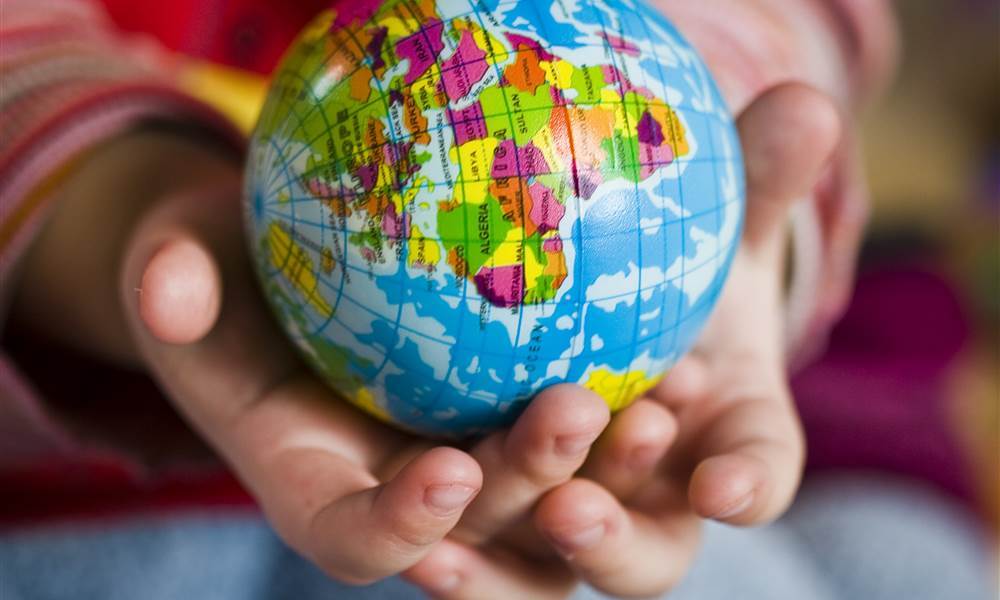
“An African Proverb goes 'It takes a village to raise a child.' But we must build this village as a condition to educate. The land must be cleared from discrimination with the dissemination of fraternity" [loving and interdependent humanity]. — Pope FrancisLast October, Pope Francis invited representatives from around the world to a virtual gathering at the Vatican. They were members of major religions, international organizations and humanitarian institutions, as well as representatives of the academic, economic, political and cultural world. Pope Francis brought them together to ask for their support on a Global Compact on Education, which he hopes will be revolutionary. All signed on to this global educational pact.
The pope instructed the Congregation for Catholic Education to request those responsible for the education of young people and adults to commit fully to the pact. This Congregation is responsible for carrying out the mission of 216,000 Catholic schools, with more than 60 million students, along with 1,750 Catholic universities, made up of more than 11 million students.
DePaul is part of this Catholic education tradition. Many branches of the Vincentian Family run hundreds of schools around the world, in addition to thousands of students at Vincentian universities. Many schools, both Catholic and not, are already strengthening anthropological, communicative, cultural, economic, generational, interreligious, pedagogic and social dimensions in response to this global pact.
The pope asks for Catholic higher education to rethink its role in producing social transformation, and developing just and peaceful societies. We all must disseminate and better implement how we educate our students and bring our resources to bear for the benefit of humanity. The heart of the Global Compact is deeply connected to our Vincentian Spirit at DePaul.
“All change requires a process of education in order to create new paradigms capable of responding to the challenges and problems of the contemporary world, of understanding and finding solutions to the needs of every generation, and in this way contributing to the flourishing of humanity now and in the future. We consider education to be one of the most effective ways of making our world and history more human," Pope Francis said in the announcement of his Compact, which asks for seven commitments.
The Global Compact on Education's commitment to renewing society while uplifting human dignity reflects a commitment DePaul already takes to heart. It can be seen in the role we play in encouraging social mobility and breaking trans-generational cycles of poverty, particularly regarding first generation college students. It is evidenced by our Vincentian Spirit and in how we understand, as do many advocates everywhere, that education is the solution to the many contemporary problems we face around the world. Education is vital in attempting to eradicate poverty and establish lasting change.
Concern with charity in supporting and protecting lives at risk has always been the heart of the Vincentian Family. As long as people live in poverty, meeting material needs will remain important. But education goes beyond charitable work. Vincentians today understand only systemic change can truly address the risks stemming from social injustice, structural poverty, violence and environmental degradation.
Pope Francis' Compact is a reminder that for education to be sufficient for today's needs it must speak to human dignity and celebrate diversity in a way that builds unity in solidarity, while not being watered down by uniformity. Human dignity and diversity are two inseparable ethical demands of a just human world. We must educate students to embrace an “ethic of ecology." They must see themselves within the fabric of a global community. Compassionate care for others will only be possible if we develop a strong sense of our “ecological citizenship."
Pope Francis called on Catholic universities when he said, “Never before has there been such need to unite our efforts in a broad educational alliance, to form mature individuals capable of overcoming division and antagonism, and to restore the fabric of relationships for the sake of a more fraternal [loving and interdependent] humanity."
As we know, education that liberates, and creates justice, sustainability and a loving society, is very challenging. We are on the right road, but have urgent work to do. I encourage us all to redouble our efforts and commitment to educate for transformation. We must recognize the hope such work offers as well as the difficulties.
“May we be sustained by the conviction that education bears within itself a seed of hope: the hope of peace and justice; the hope of beauty and goodness; the hope of social harmony," Pope Francis said in the launch of the pact.
With gratitude, we remember the legacy of the many passionate and dedicated educators who have emphasized social justice, equity, sustainability and peace as essential components of a DePaul education for nearly 125 years.
In community dialogues held in the fall to review the university mission statement, it became clear the Vincentian Spirit is alive and well in our collective heart. It is calling us to continue to commit to a pedagogical approach that, in accord with the commitments of Pope Francis' Global Compact, puts our students at the center. We must listen to their voices, needs, and concerns. We must see the role of family as essential to education. We must respond to inequity, to the most vulnerable and marginalized, and seek to effectively transform broken systems. We must find new ways of understanding the economy, politics, development, growth and progress to protect humanity from exploitation. We must embrace subsidiarity, solidarity and a circular economy to protect our common home, the earth.
Here at DePaul, we do! Because of this, and because of what we value, we pledge our commitment to the Global Compact on Education.